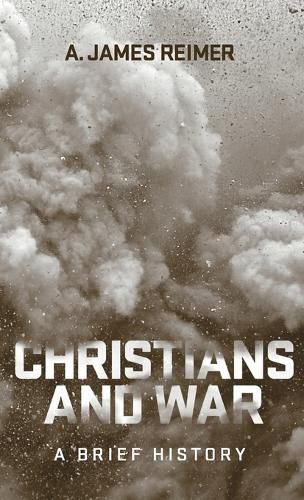Readings Newsletter
Become a Readings Member to make your shopping experience even easier.
Sign in or sign up for free!
You’re not far away from qualifying for FREE standard shipping within Australia
You’ve qualified for FREE standard shipping within Australia
The cart is loading…






Religion, and specifically Christianity, has often been blatantly invoked to support or oppose war and violence of all kinds. Christians are deeply divided over whether and when such violence is justifiable.
James Reimer offers a fair presentation of these controversial standpoints, including the classical Christian attitudes toward war: crusading or holy war, just war, and pacifism. His thoughtful survey of Christian teachings and practices on issues of war, violence, and the state takes readers from classical Greco-Roman times to postmodernity. Arguing that the church's responses to war can only be understood through the church's changing relationship to culture, Reimer concludes with an analysis of the contemporary debate and proposes criteria for legitimate and illegitimate use of force by nation-states.
Through confronting the Christian church's history, which is complex and sometimes difficult to endure, Reimer encourages readers to think criticially and come to hold their own position that promotes both peace and justice.
$9.00 standard shipping within Australia
FREE standard shipping within Australia for orders over $100.00
Express & International shipping calculated at checkout
Religion, and specifically Christianity, has often been blatantly invoked to support or oppose war and violence of all kinds. Christians are deeply divided over whether and when such violence is justifiable.
James Reimer offers a fair presentation of these controversial standpoints, including the classical Christian attitudes toward war: crusading or holy war, just war, and pacifism. His thoughtful survey of Christian teachings and practices on issues of war, violence, and the state takes readers from classical Greco-Roman times to postmodernity. Arguing that the church's responses to war can only be understood through the church's changing relationship to culture, Reimer concludes with an analysis of the contemporary debate and proposes criteria for legitimate and illegitimate use of force by nation-states.
Through confronting the Christian church's history, which is complex and sometimes difficult to endure, Reimer encourages readers to think criticially and come to hold their own position that promotes both peace and justice.